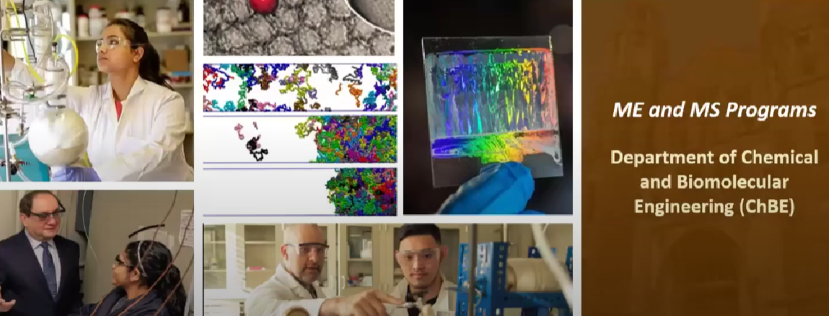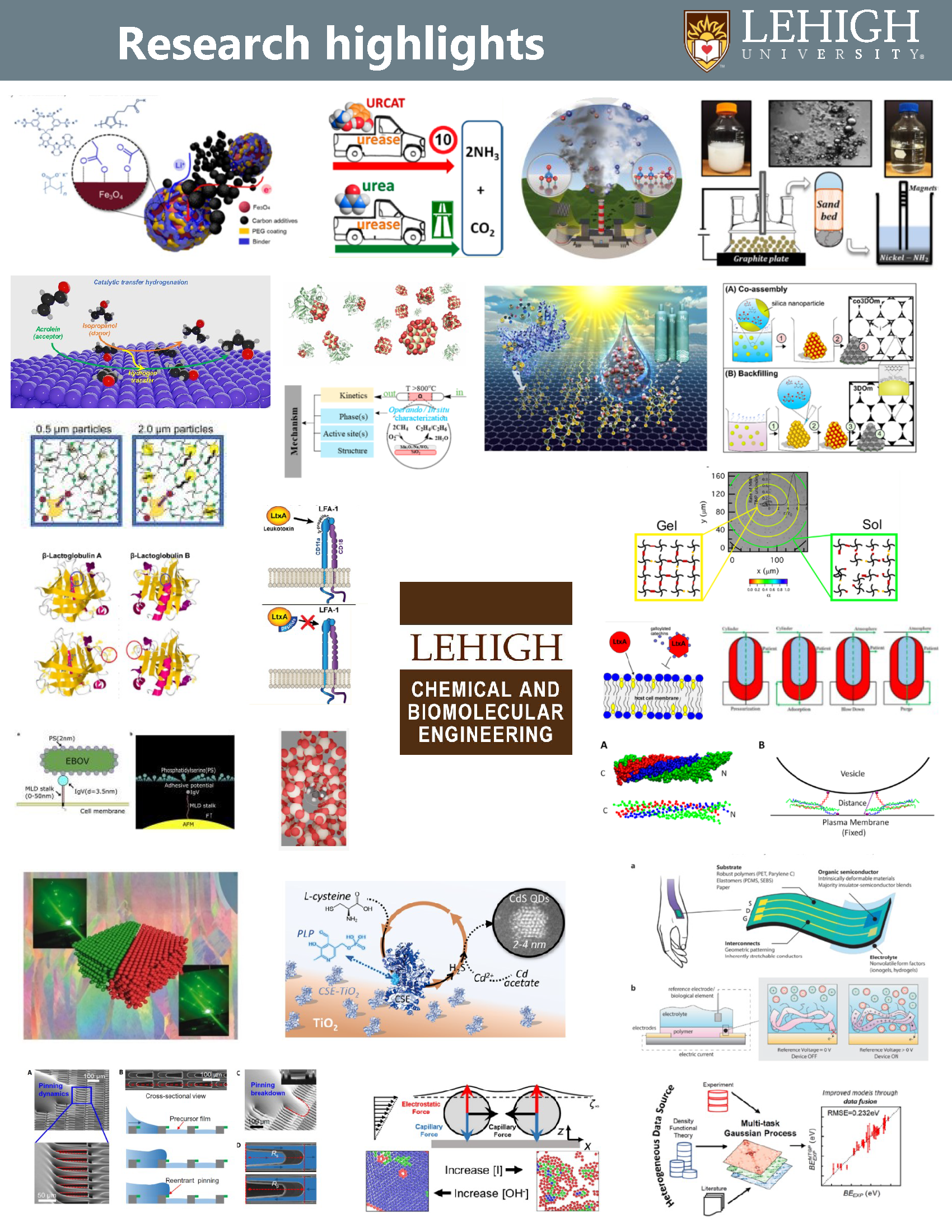Masters in Chemical Energy Engineering (M.Eng.)
Overview
Our research-active faculty members bring state-of-the-art technology, knowledge and teaching methods to the classroom, creating an intellectually stimulating environment for students to engage in advanced learning through our MS/MEng degree offerings. Our program is rigorous but has a very high completion rate of the Master’s degree requirements within a period of about 1.5-2 years. In addition to undergraduate majors in chemical engineering, our Master’s program is also suitable for select students from physics, chemistry, and other engineering.
The mission of this program is to produce professionally-oriented graduates who have both an in-depth technical understanding and a global perspective of chemical energy engineering practice. Graduates from this program will have the skills to identify, evaluate and manage cost and performance decisions throughout the major stages of energy industry.
Requirements
The Master’s degree in Chemical Energy Engineering is a 31 credit hour program. It is comprised of 16 credit hours of core chemical engineering courses, 6 credit hours of electives from Group A, no less than 3 credit hours from Non-Departmental elective energy courses, with the remaining 6 credit hours to be chosen from either Group A or B, or non-departmental electives based upon student interest (see below curriculum) at the following levels:
- Not less than 31 credit hours of graduate work at 300- or 400-level
- Not less than 18 credit hours in the field of Chemical Engineering
- Not less than 18 credit hours of coursework at 400-level
- Not less than 15 credit hours of 400-level coursework in Chemical Engineering
Students choose their coursework and complete their degree requirements by selection of any set of courses consistent with these requirements. Once accepted, the Master’s degree performance requirements will apply as follows:
- No course with a grade below a “C-” may be included in the degree program
- More than four grades (regardless of number of credits) below “B-“ terminates the student’s eligibility for continued graduate work at Lehigh.
Admission
In order to be considered for admission as a regular graduate student in the Master’s of Engineering in Chemical Energy Engineering, an applicant must have an undergraduate cumulative GPA of 3.0 or higher and a GPA of 3.0 or higher for thelast two semesters of undergraduate studies. In addition to the minimum requirements, an applicant must have at least two semesters of calculus. Applicants with a degree other than Chemical Engineering may be recommended to taking the bridging course, Fundamentals of Chemical Engineering III, ChE 283; and depending on their background, an additional course may be recommended. These courses will not count toward degree requirements. As of fall 2020, Lehigh CHBE program no longer requires submission of GRE scores as part of the gradute application process. International applicants must submit TOEFL scores. A personal essay summarizing your career objectives and work experience with respect to your chosen field of study must be submitted along with the application for admission and two letters of recommendation. Applicants that do not meet the above-mentioned requirements may be admitted at the department’s discretion.
Curriculum
Required Core Courses
|
ChE 376 Energy: Issues and Technology (3) |
ChE 415 Transport Processes (4) |
|
ChE 400 Chemical Engineering Thermodynamics (3) |
ChE 452 Mathematics Methods in Chemical Engineering (3) |
|
ChE 410 Chemical Reaction Engineering (3) |
|
Group A: Elective ChE Courses (minimum 6 credits)*
|
ChE 413 Heterogeneous Catalysis and Surface Characterization (3) |
ChE 396 Electrochemical Engineering (3) |
Group B: Elective ChE Courses
|
ChE 331 Separation Processes (3) |
ChE 401 Chemical Engineering Thermodynamics II (3) |
|
ChE 386 Process Control (3) |
ChE 428 Rheology (3) |
|
ChE 391 Colloid and Surface Chemistry (3) |
ChE 430 Mass Transfer (3) |
Non-Departmental Elective Energy Courses (minimum 3 credits)
|
ISE 410 Design of Experiments (3) |
ME 360 Nuclear Reactor Engineering (3) |
|
ISE 426 Optimization Models and Applications (3) |
ME 362 Nuclear Fusion and Radiation Protection (3) |
|
ISE 455 Optimization Algorithms and Software (3) |
ME 364 Renewable Energy (3) |
| ME 366 Engineering Principles of Clean Coal Technology (3) |
Credit transfer:
A maximum of up to nine credits taken at the graduate level elsewhere may be transferred from an accredited graduate college or graduate university to a Lehigh University Engineering Master’s program. All courses must be submitted to the department along with a course description (syllabus), a letter from the university stating that the credits were actual graduate-level courses, and not used toward a previous degree, and also an official transcript if not already provided. If not provided electronically to the email address below, transcripts can be mailed directly to the Chemical and Biomolecular Engineering Department.
Questions or Inquiries?
Please direct any questions or inquiries to inchegs@lehigh.edu.




